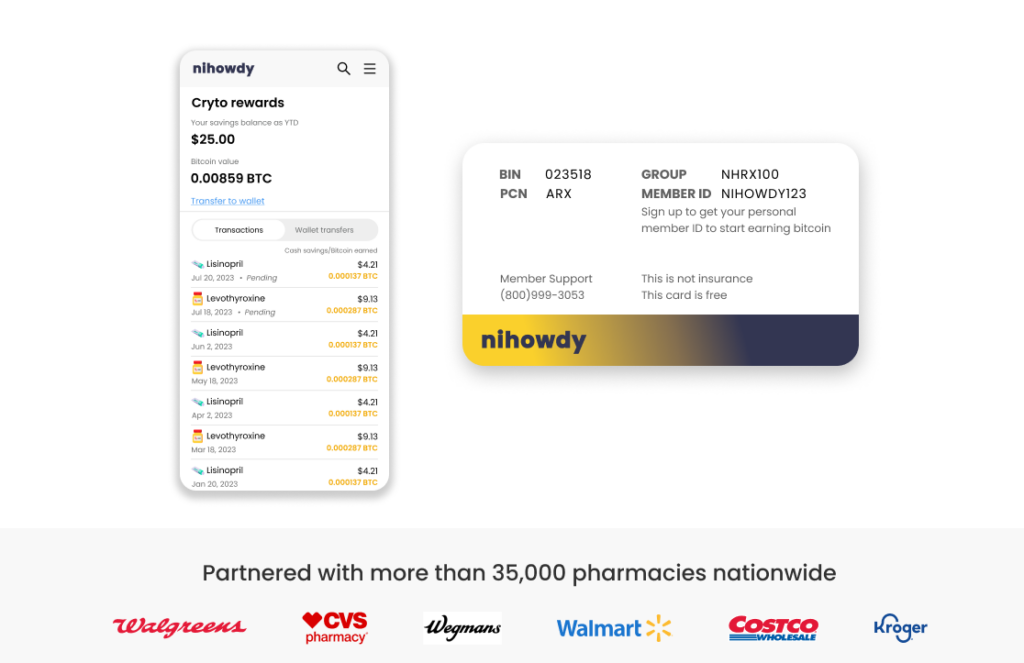Safe Medication Combinations: What Drugs Can You Take Naproxen With?

Wondering what drugs can you take naproxen with? This concise guide identifies safe over-the-counter options and prescription medications to pair with naproxen, while underlining the crucial role of professional medical guidance to ensure safety.
Key Takeaways
Naproxen is a versatile NSAID used for various conditions causing pain, swelling, and fever since 1994, and can be combined with certain medications under medical supervision.
Combining naproxen with other NSAIDs, blood thinners, or drugs metabolized by the liver can significantly increase risks of bleeding, liver damage, and gastrointestinal issues.
Concurrent use of naproxen with alcohol can irritate the stomach lining, increasing the risk of gastritis and stomach bleeding; hence, alcohol consumption should be limited or avoided while taking naproxen.
Understanding Naproxen

Naproxen stands out among the nonsteroidal anti-inflammatory drugs (NSAIDs) for its proven efficacy in reducing:
Pain
Tenderness
Inflammation
Stiffness
These conditions can manifest as part of an allergic reaction or other medical issues. By blocking the body’s production of substances that trigger pain, fever, and inflammation, naproxen has become a go-to medication since becoming available without a prescription in 1994.
Available to patients in various forms—including immediate-release tablets, extended-release tablets, liquid suspension and topical solutions—naproxen offers multiple ways to treat and manage symptoms effectively.
Uses of Naproxen
Prescription naproxen is highly regarded for its efficacy in alleviating intense pain associated with conditions such as arthritis, bursitis, tendinitis, gout or menstrual cramps. The versatility of this drug extends beyond prescription use. Over-the-counter forms of naproxen are effective at lowering fever and easing lesser pains that arise from everyday maladies.
The scope of this medication’s application includes off-label prescriptions by some healthcare practitioners for the acute treatment and prevention of migraines, highlighting naproxen’s wide-ranging capabilities in managing different types of pain.
How Naproxen Works
The capacity of Naproxen to deliver pain relief and diminish inflammation stems from its role in:
Blocking the creation of specific substances within our bodies that are responsible for inducing pain.
Suppressing the formation of prostaglandins through the hindrance of cyclooxygenase enzymes COX-1 and COX-2, with a heightened selectivity toward COX-1 that is abundantly present at sites where inflammation occurs.
Naproxen indirectly offers relief from pain by impeding prostaglandins, which would typically make pain receptors more sensitive, thus enhancing its analgesic effects.
Safe Drug Combinations with Naproxen

Naproxen often serves as a robust, independent agent for pain relief. Yet, occasions may arise when it necessitates pairing with additional methods or medications for alleviating pain. Importantly, such combinations should occur strictly under the supervision of a healthcare professional. It’s crucial not to change your medication regimen unless your doctor tells you to do so, ensuring the safety and effectiveness of your treatment.
Over-the-counter Medications
Consult your doctor before taking over-the-counter medications such as acetaminophen in conjunction with naproxen, even though these combinations can be safely used for brief durations to enhance pain relief without posing a substantial risk when taken according to guidance.
It is prudent practice to seek the advice of medical professionals before commencing any new medication routine. As doctors routinely advise patients, should you require medical attention, do not hesitate. Always communicate any issues regarding medication or pain management with your doctor.
Prescription Medications
Naproxen is capable of being an effective component in a combination therapy. With the oversight and recommendations from a healthcare professional, its long-term use alongside prescription pain medications can be managed safely. To mitigate gastrointestinal side effects, it’s advised to consume naproxen and prednisone with meals.
It is crucial to strictly follow prescribed dosage guidelines when taking naproxen together with hydrocodone or ibuprofen. This caution stems from the heightened risk of dependency associated with this category of drugs as well as the possibility of drug interactions occurring between these medications.
Potential Risks and Drug Interactions

It is essential to exercise caution when mixing naproxen with other medications, as this can lead to potential risks and drug interactions. Using naproxen in high doses or over an extended period might elevate the chances of experiencing grave cardiovascular events, including heart attacks and strokes, along with gastrointestinal complications. Notably, black, tarry stools could be a sign of gastrointestinal bleeding that requires immediate medical attention.
Taking naproxen alongside other nonsteroidal anti-inflammatory drugs (NSAIDs), for instance ibuprofen, could amplify the risk of adverse side effects. Hence such combinations should be steered clear of. If you notice symptoms like ‘coffee grounds’ in vomit, it indicates serious gastrointestinal complications and warrants immediate medical attention.
Increased Risk of Bleeding
Combining naproxen with other NSAIDs available over the counter, such as ibuprofen or aspirin, can markedly increase the risk of bleeding. This risk is increased when naproxen is taken alongside anticoagulants or medications that thin the blood like warfarin, which magnifies their blood-thinning effects and can lead to a greater likelihood of bleeding.
It’s important to recognize that taking naproxen in conjunction with corticosteroids such as prednisone may result in gastrointestinal issues including inflammation, ulceration, and bleeding. There are even infrequent cases where perforation has occurred.
Liver Problems
The use of naproxen may result in liver damage, presenting as a combination of cholestasis and hepatitis that could take several years to heal. This risk is heightened when taken with other drugs processed by the liver, like acetaminophen.
Although it’s considered safe to use naproxen alongside acetaminophen at prescribed doses, doing so can provoke liver complications if either drug is consumed in excessive amounts or if there are preexisting liver conditions.
Heart Disease
Be aware that if you are taking specific medications for heart issues and high blood pressure, using naproxen in conjunction with them could increase your risk of developing heart disease. Should you be prescribed such medications, consulting with your healthcare provider is essential prior to commencing treatment with naproxen.
Precautions and Tips for Combining Naproxen with Other Drugs

After delving into the potential risks and various interactions, it is essential to consider certain safety measures when mixing naproxen with different drugs. To avoid other interactions, it’s important to tell your doctor about all medications, supplements, and over-the-counter drugs you’re taking. It’s crucial to remain vigilant about possible interactions involving food, alcohol, or tobacco and closely observe any negative side effects that may occur.
Tell your doctor about any prescription drugs, over-the-counter remedies, herbal treatments, vitamins, and supplements you are taking to ensure safe use with naproxen. To avoid potentially harmful consequences and additional interactions, one should steer clear of taking an excessive amount of naproxen as well as using it simultaneously with MAO inhibitors.
Consult Your Doctor
Always seek the guidance of a healthcare provider or pharmacist before mixing naproxen with other medications. Their expertise is vital to ascertain whether it’s appropriate to modify your medication regimen or consider different options, especially when combining naproxen with substances like prednisone.
Be sure to disclose every substance you are taking – not just prescription drugs, but also over-the-counter remedies, herbal treatments, vitamins and supplements – to your healthcare provider. This will help them make an informed decision about safe concurrent use with naproxen.
Monitor Symptoms
When using naproxen alongside other medications for more than several days, it’s crucial to keep a close watch on any symptoms. The presence of abdominal pain or stools that are bloody or resemble tar can be signs of significant adverse reactions resulting from the combined use of drugs and should immediately be brought to the attention of a medical professional.
Follow Prescribed Dosage
It is of utmost importance to follow the exact dosages prescribed by a healthcare professional when taking naproxen, particularly if it’s being used in combination with other medications. When combined specifically with painkillers like prednisone, sticking to the recommended dosages helps significantly lower the risk associated with undesirable side effects.
Treatment should commence using the minimal effective dose that alleviates symptoms and should be limited in duration as much as possible to reduce potential risks. If circumstances warrant medical attention at any point during treatment, one must seek immediate medical attention without delay.
Alcohol and Naproxen

Mixing naproxen with alcohol can heighten the likelihood of gastrointestinal complications since alcohol consumption irritates the stomach lining. This combination may lead to an increased risk of developing stomach ulcers and bleeding, especially when taken alongside other medications.
Increased Risk of Stomach Bleeding
Consuming alcohol in conjunction with naproxen can substantially raise the likelihood of experiencing gastritis and stomach bleeding. Specifically, those who consume alcohol while on nonsteroidal anti-inflammatory drugs (NSAIDs) such as naproxen are at a fourfold increased risk for gastritis compared to abstainers. Symptoms of this condition—characterized by an inflamed stomach lining—can include indigestion, pain in the stomach area, and feelings of nausea.
When higher amounts of alcohol are ingested alongside NSAIDs like naproxen, there is an elevated chance for upper gastrointestinal (GI) bleeding—an event that qualifies as unusual bleeding—and this combination consequently augments your risk level.
Recommendations for Safe Alcohol Consumption
It is recommended that you abstain from alcohol when on naproxen, but if you do decide to drink, it’s crucial to keep your consumption under 14 units per week in order to reduce health risks.
Summary
In summary, naproxen is an effective treatment for alleviating symptoms of pain and inflammation as well as reducing fever. It is crucial to recognize the potential interactions between naproxen and other medications or substances such as alcohol. It’s important to seek advice from a healthcare professional before mixing naproxen with additional medications, diligently observe any symptoms, and rigidly stick to the dosages prescribed. Ensuring safety must always be paramount in the use of any medication.
Frequently Asked Questions
Can I take naproxen with over-the-counter medications like acetaminophen?
Certainly, it is possible to combine naproxen with acetaminophen found in over-the-counter medications for a brief duration, but this should be done in accordance with the guidance provided by ask your doctor or healthcare professional.
What are the risks of combining naproxen with other NSAIDs?
Mixing naproxen with additional NSAIDs increases the likelihood of experiencing side effects, notably a higher risk for bleeding.
To avoid any potential problems, it’s crucial not to use them concurrently.
Can I drink alcohol while taking naproxen?
It’s best to avoid alcohol while taking naproxen. If you do decide to drink, limit your intake to no more than 14 units per week to minimize health risks.
What symptoms should I monitor when taking naproxen in combination with other drugs?
When using naproxen alongside other medications, be vigilant for indications of serious side effects like abdominal pain or bloody stools.
Is it safe to take naproxen with prescription painkillers?
It is indeed secure to use naproxen alongside prescription pain medications, provided a healthcare professional has prescribed them and is overseeing their combined usage. Make sure to consult your doctor before mixing any medications.


